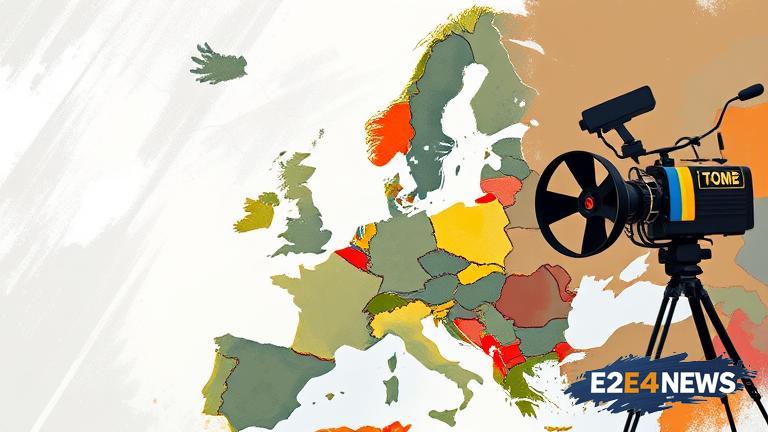The European film industry has been witnessing a significant growth in recent years, with a notable increase in production and distribution of films. This growth can be attributed to the rise of streaming platforms, which have created new opportunities for filmmakers to showcase their work. Moreover, the industry has seen a diversification of content, with more emphasis on genre films, documentaries, and animated movies. The use of new technologies such as virtual reality and artificial intelligence has also become more prevalent, allowing for more innovative and immersive storytelling. Furthermore, the industry has seen a growth in international co-productions, with European filmmakers collaborating with partners from around the world. This has led to a more globalized and interconnected film industry, with European films being showcased at festivals and markets worldwide. The European Union has also been playing a crucial role in supporting the film industry, with initiatives such as the Creative Europe program providing funding and resources for filmmakers. Additionally, the rise of film festivals and markets has provided a platform for European filmmakers to showcase their work and connect with industry professionals. The industry has also seen a growth in female filmmakers, with more women taking on key roles in production and direction. The use of social media and online platforms has also become more important, with filmmakers using these tools to promote their work and engage with audiences. However, the industry is also facing challenges such as piracy and copyright infringement, which can have a significant impact on revenue and profitability. Despite these challenges, the European film industry remains a vibrant and dynamic sector, with a rich history and culture. The industry is also playing an important role in promoting European culture and values, with films often reflecting the diversity and complexity of European society. The growth of the film industry has also had a positive impact on local economies, with film production and tourism generating significant revenue and creating jobs. The industry is also contributing to the development of new technologies and innovations, with filmmakers and producers pushing the boundaries of what is possible. The European film industry is also recognized for its high-quality productions, with many European films winning awards and accolades at international festivals. The industry is also home to a number of world-renowned film schools and training programs, which are providing the next generation of filmmakers with the skills and knowledge they need to succeed. Overall, the European film industry is a thriving and dynamic sector, with a rich history, diverse content, and a global reach. The industry is expected to continue growing and evolving in the coming years, with new technologies and trends emerging. The European film industry is also playing an important role in promoting cultural diversity and exchange, with films often reflecting the complexities and nuances of European culture. The industry is also contributing to the development of new business models and revenue streams, with filmmakers and producers exploring new ways to finance and distribute their work. The growth of the film industry has also had a positive impact on the environment, with many film productions adopting sustainable and eco-friendly practices. The industry is also recognized for its social and economic impact, with film production and tourism generating significant revenue and creating jobs. The European film industry is a significant contributor to the European economy, with the industry generating billions of euros in revenue each year. The industry is also playing an important role in promoting European culture and values, with films often reflecting the diversity and complexity of European society.
